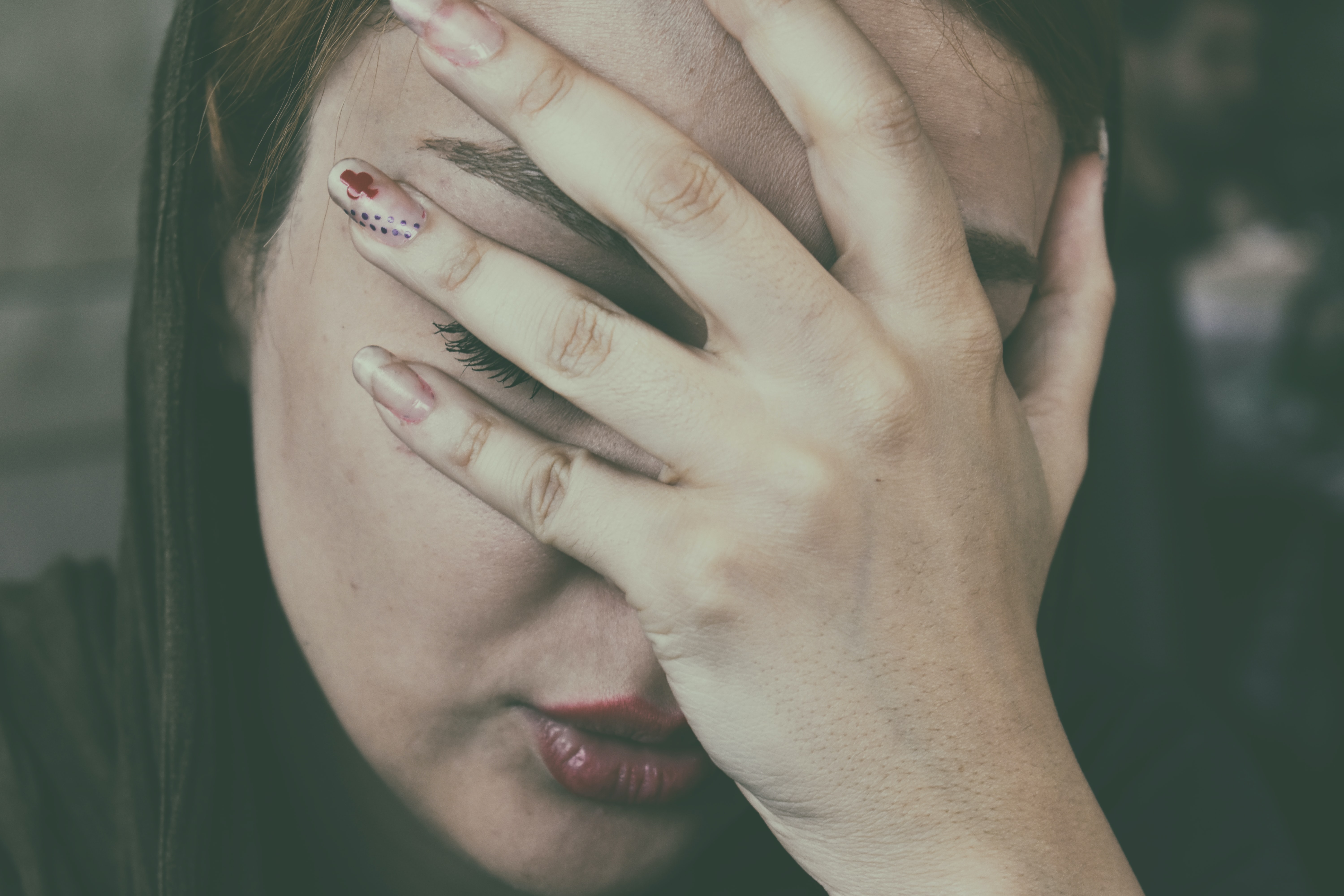Last updated on January 6th, 2023 at 12:04 pm
Both cluster headaches and migraines are horrible. But what if you get both? Sadly, this is a very real possibility for some headache sufferers…
People can have both cluster headaches and migraines at the same time. But what exactly is a cluster headache and a migraine?
These are neurological conditions that have some things in similar. If you suffer from either a cluster headache or a migraine, you could be in a lot of pain.
As a result, you may end up feeling sick. If you want to learn more about migraines and cluster headaches, then this guide will be able to help you. Are you suffering from a migraine attack or cluster headache?
Both cluster headaches as well as migraines share certain triggers. These include a lack of sleep, stress, and even changes in the weather.
You could have a cluster period on the side of the head, where it pains you more than you can tolerate. In such cases, you may need to seek medical attention.
Some people also experience a chronic cluster headache as well. Getting cluster headache attacks or migraine attacks are usually nothing to worry about.
But if the symptoms persist, then there could be underlying health issues that you need to get checked out.
How Long Do Cluster Headaches Last?
Cluster headaches usually last for a short period of time. They can last from thirty to ninety minutes.
Some cluster headaches are as short as fifteen minutes long while more severe headaches can last for up to three hours. If you get cluster headaches regularly, then you’re likely to get between one to around three headaches every day.
Such an episodic cluster headache can last for varying lengths of time.
In many people, cluster headaches usually occur at night. They take place around an hour or two before going to bed.
Does Sleep Help Cluster Headaches?
Sleep is usually a good remedy for migraines, but the same can’t be said for cluster headaches. If you’re experiencing a cluster headache, then you could be in a state of agitation when it happens.
Due to this, sleeping with a cluster headache can be difficult. But there are things that you can do to better deal with this situation.
You could, for example, decide to take melatonin supplements before you go to bed. When the dosage of these supplements is between 10 and 25 mgs, they could help you to sleep even if you have a cluster headache.
Is Heat Or Cold Better For Cluster Headaches?

Cluster headaches can be so painful for some people that they are also known as suicide headaches. During a headache, the blood vessels in the head are affected.
You could consider using a nasal spray to ease the congestion in the sinuses. When you have regular cluster headaches, your circadian rhythms could be affected as well.
If this is the case, then your healthcare provider can better help you to deal with the situation. Severe headaches can stop you from giving your best everyday.
But the good news is that there are treatments available. Some treatments you could try at home however, include using the heat or cold temperatures.
People who suffer from migraines usually prefer colder temperatures. If you have a migraine, then placing a cold pack on your head could help you deal with the pain better.
Another option is a warm pack, but this is better suited to people who suffer muscle contraction headaches.
To deal with a cluster headache, using an ice pack may be a good idea. Apply your cold pack to the affected area for around ten to twenty minutes.
There should be a thin cloth placed between the ice and the affected area. Understanding the risk factors that can trigger headache attacks can better help you deal with them.
Cluster Headaches VS Migraines
You may be wondering what are migraines and cluster headaches. Migraines involve a severe throbbing pain, usually to the side of the head.
Often, this is just limited to one side of the head. Cluster headaches last for less time than migraines.
However, they are more likely to recur within a certain period of time. The remission period could last for a few years as well.
Those who suffer regularly from cluster headaches usually get them during the same season each year. Migraines are more common than cluster headaches, with the latter affecting a significantly smaller portion of the population.
Clinical trials have shown that migraine attacks are more common than cluster headaches.
Are Cluster Headaches Dangerous
Cluster headaches tend to occur in cyclical patterns. These are also known as cluster periods.
When you get a tension headache, you could suffer from a runny nose as well. Clinical trials indicate that cluster headaches are both shorter as well as less severe.
Your tension headaches can also be reduced if you take certain medications. During your remission periods, monitor your symptoms carefully.
You could suffer from nasal congestion at this time. A runny nose could also be a problem.
The trigeminal nerve is involved in cluster headaches. If during the last months, you’ve been getting regular headaches on the side of your head, then these could be cluster headaches.
While cluster headaches are more rare, they are not life threatening. If you suffer from medical conditions like primary headache disorders, then visiting headache specialists may be a good idea.
This is as they can prescribe you with preventive medications that inhibit cluster headaches from happening.
Cluster Headache Symptoms

The symptoms of cluster headaches may enable you to better understand what kind of headache you are suffering from. The symptoms include:
- Severe pain, usually on one side of your head
- The onset of pain may be sudden
- Your eyes could water
- Your nose could be runny
- You could wake up in the middle of the night with a throbbing headache
- Symptoms last for less time than a migraine
- Headaches can recur over the period of a few months
Cluster Headaches Treatment At Home
If you suffer from cluster headaches, then you may get several attacks through the course of the day. Cluster headache patients usually suffer happen at night.
You may be seeking pain relief from cluster headaches. With accurate diagnosis, cluster headaches can be treated at home.
By targeting the part of the brain responsible for the cluster headaches, you can deal with them better, even at home. Here are some treatments that may help:
- Melatonin: Taking melatonin supplements of around 10-25 milligrams before you go to bed can help you deal better with cluster headaches.
- Capsaicin Cream: This is another over the counter medication that can help you. Apply this analgesic to the inside of your nose with the help of a cotton swab.
- Deep Breathing Exercises: One of the main treatments for cluster headaches is oxygen therapy. That’s why providing your body with excess oxygen can help you calm your body down and manage pain better.
- Magnesium: Taking magnesium supplements or foods that are rich in magnesium can help you to alleviate the pain from cluster headaches.
- Kudzu Extract: This is a botanical supplement that’s obtained from kudzu vine. There is anecdotal evidence that suggests that this supplement can help deal with cluster headaches.
Living With Cluster Headaches
If you’re getting cluster headaches, then you should learn how to live with it such that it doesn’t interfere with your daily tasks. One thing you should avoid if you get cluster headaches is alcohol.
Alcohol use can exacerbate your condition. Treatment of cluster headaches can be done at home.
You can also consider getting a CT scan if you’re worried about your condition. Preventive treatment can help you manage your health conditions better.
If you have watery eyes or a runny nose, then these could be signs that a cluster headache is on the way. You can ask your family members to support you if you get cluster headaches.
The best treatment for cluster headaches depends on how intense your headache is, but you can use calcium channel blockers for intense pain.
Getting a cluster headache can be extremely painful, so preventive treatment is always the best option.
FAQ Relating To Can You Have Cluster Headaches And Migraines

You may have questions about migraines and cluster headaches. These are the most common questions that people have regarding cluster headaches and migraines.
There are different types of headaches that you can get. Migraines are more common and usually go away by themselves.
Cluster headaches are rare and can keep recurring over a set amount of time.
Can You Have Cluster Migraines?
While rare, it is possible for you to get cluster migraines as well. If you find yourself experiencing recurring headaches that affect your daily lifestyle, then consider visiting a specialist.
Does Migraine Medicine Help With Cluster Headaches?
Yes, you can use migraine medicine in order to deal with cluster headaches. Take for example triptans.
This is an injectable form of sumatriptan that is used in treating migraines. It’s also an effective treatment option for cluster headaches.
Why Do I Get Migraines In Clusters?
The exact cause behind why people get cluster headaches is still unknown. However, research suggests that these migraines could be due to abnormalities that exist within the biological clock of the body.
Migraines are often associated with triggers. But should you get them in clusters, then this signifies you’re getting cluster headaches.
Effective treatment options include oxygen, triptans, local anaesthetics, octreotide, and more.
These were what you should know about cluster headaches. Understanding the cluster headache signs can better help you mitigate and manage them.
Do Cluster Headaches Show Up In MRI?
An MRI will not be able to diagnose cluster headaches. What it can help with is in ruling out other medical conditions that could also be contributing to your headaches.
These include brain tumors, brain abscesses, fluid buildup in the brain, and more.
